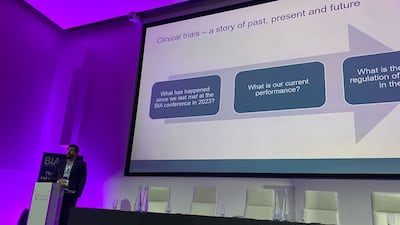Pathways & Standards
Approval Standards

The former CDER Director spoke to the Pink Sheet about why a new statutory standard is needed for certain rare disease drug approvals. We lay out some of her thinking in part one of a multi-part series on the topic.

Regulators do not have the resources to “double check” that companies are using AI appropriately, meaning that manufacturers must ensure the AI tools they use meet relevant standards, says an EU regulatory expert.

Despite the recent anti-vaccine rhetoric in the final weeks of the Trump campaign, pulling an established safe and effective product off market would be difficult. But there’s little to stop political interference in approvals.

Japan is cautiously easing Japanese clinical data requirements for rare disease drugs to allow faster and more flexible approvals, including on a conditional basis supported by postmarketing studies.
Review Pathways

The former CDER Director spoke to the Pink Sheet about why a new statutory standard is needed for certain rare disease drug approvals. We lay out some of her thinking in part one of a multi-part series on the topic.

The STAR pilot established in PDUFA VII for efficacy supplements, which was modeled after the popular Real Time Oncology Review program, has not garnered much interest. The agency now is establishing a separate but similar pilot for a small number of original NDAs and BLAs.

With approval applications for new active substances expected to rise by 25% by 2026, the UK regulator says it wants to focus its national assessment procedure on new innovative therapies. It will also review progress with the new International Recognition Procedure.

The UK’s drug regulator, the MHRA, is exploring new opportunities to work closer with its counterparts from Australia, Canada, Singapore and Switzerland under the ACCESS Consortium group, with a focus on pre-submission scientific advice.
User Fees

Another record-breaking year for novel approvals looks out of reach, but the six novel agents with November goal dates show the continued strength of rare disease drug development.

The number of standard and priority reviews also decreased significantly in FY 2023 compared to the previous year, which caused the fee for redeeming a voucher to rise.

Advisory committee concerns cast clouds over Iterum’s oral antibiotic, Intercept’s Ocaliva, and perioperative immuno-oncology regimens, while CSL and Pfizer aim to take their hematology franchises in new directions.

Inflation accounted for a larger portion of user fee revenue target increases for fiscal year 2025, compared to previous years, according to a Pink Sheet analysis.